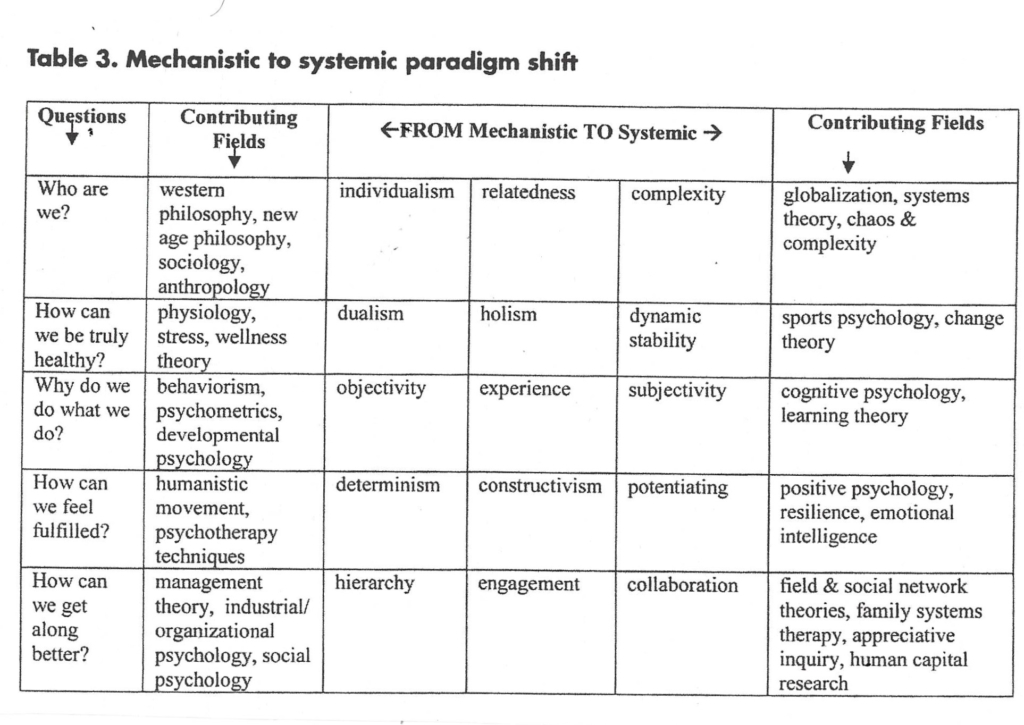
Neurosocial Dynamics: Toward a Unique and Cohesive Discipline for Organizational Coaching
Rock and Page (2009) called this set of ideas the “mechanistic paradigm.” It took its name from discoveries in physics. Rock and Page draw on the study of systems for the name of the new paradigm: “systemic.”
Application of the term “paradigm” to modern scientific thought is credited to Thomas Kuhn (1962). According to Kuhn, a paradigm is a mental model or a set of beliefs through which we view the world. The paradigm referred to as “mechanistic” was employed in Western European and later in North American thinking from the time of Isaac Newton in the 17’h century to the mid-20th century, although it has gone through various stages during that time This paradigm is referred to in many other ways: classical or Newtonian mechanics, modern, rational, logical positivist, industrial, capitalist. In general, mechanism assumes that objective truth is the goal of inquiry, that understanding results from studying the bits and pieces that constitute phenomena, and that causes lead in only one direction to determine effects. Mechanism also assumes a universe that is rather like a clock. The existence and behavior of all its elements can be perfectly understood if only we can identify the causes that happened just before the moment we are trying to understand. We can understand those prior causes by identifying what determined them–and on and on back to the beginning of time. As discussed above, the hegemony of this paradigm has been eroded over the 20’h century in all the fields that have contributed to coaching, as well as in many others.
Kuhn (1962) defined a paradigm shift as a discontinuous and sometimes radical change in assumptions. Before his book appeared, scientific progress was commonly thought to consist of small discoveries accumulating to form larger, more significant explanatory theories. Kuhn disagreed that this was the only way progress happened in science. He argued that some discoveries are revolutionary and cause giant leaps forward. For example, Galileo’s claim that the earth was round shook the very foundation of how questions are formulated and answered. This was a major paradigm shift in human history.
- Posted by Linda Page
- On January 4, 2022
- 0 Comment



Leave Reply